The People Who Feed Montana
Agriculture is Montana's largest industry, bringing in close to four billion dollars to the economy every year. The role agriculture plays in the lives of all Montanans can't be understated. One out of every six Montana workers is employed in a field related to agriculture, and around twenty-eight thousand farms and ranches cover 58 million acres, over half of the state's total acreage. The agricultural commodities grown and raised by operations covering 10,000 acres or more provide numerous jobs, a much-needed boost to the local economy, and food for people across the country and even across the world.
Many Montanans are being fed by these larger farms and ranches, but consider for a moment that the average size of a farm and ranch in the state is barely over 2,000 acres. These smaller operations are often family-owned. They must constantly embrace innovation and seek out creative ways to keep their livelihood afloat. As residents of Montana continually look for ways to support their local communities, increasingly, it is these smaller-scale farmers and ranchers who are the people feeding Montana.

Western Montana Growers Cooperative is a coalition of over 50 growers and producers based in the Flathead, Jocko, Mission, and Bitterroot Valleys that provides a wholesale marketing and delivery service to its members. Coop General Manager Dave Prather says, "The breadth of products being offered by Montana farmers and producers is pretty impressive." These range from muskmelons from Dixon Melons, to cage-free eggs from Spencer's Valley View Farm in Plains, to a variety of unique cheeses from Flathead Lake Cheese in Polson.
One of the cooperative's long-time members is Harlequin Organic Produce, a 40-acre farm in Arlee in the shadow of the Mission Mountains. Owners Kaly Hess and Brian Wirak grow a variety of vegetables that Kaly describes as the "classics," including beets, carrots, tomatoes, peppers, onions, broccoli, cabbage, cauliflower, winter squash, and salad greens.
Both Kaly and Brian studied agriculture at Montana State University, but running a farm was not in their original plans. Then the land in Arlee became available, and they took a chance. "I don't think either of us knew what we were getting into when we interested in this and I don't think we had any idea of what it takes to be a small-scale vegetable producer," says Kaly. "But we liked the challenge and we could produce this tangible result that was something good we could do for the local community."

That impact is felt throughout the area. Harlequin employs eight full-time employees from May through October and two to three part-time employees year-round. In addition to selling their produce through the coop, they also run a CSA, or Community Supported Agriculture. Through the CSA, members receive a box of produce full of Harlequin's bounty. They currently drop off around 480 boxes each week from June through October. Most of the members hail from Missoula, with approximately 80 members from Arlee and a few in St. Ignatius. Kaly says, "I've been really happy to see how much our Arlee membership has grown. It's a really small community, but every year we seem to keep adding members."
On the opposite side of the state in Scobey, the Farver family has found a creative way to use the lentils they grow on the vast northeastern prairie. Terry Farver can trace his family's farming roots in Daniels County back four generations, and he has continued that tradition by running Farver Farms with his wife, Shauna, and their kids. Aside from lentils, they grow a variety of crops on their 5,000 acres, such as spring and durum wheat, peas, and barley, and raise of a herd of Angus cattle.
"At one point, we looked around and thought, we have extra acres and extra crops and we wanted to do something to create extra income," says Shauna. They looked at options like agritourism, but they kept coming back to food. Shauna especially remembers helping her German grandmother in the kitchen, who used food to express her love. This brought them to create their Lentil Crunchers Snacks and Lentil Mixes, which they sell online and in retail locations throughout Montana. Snacks consist of savory, crunchy lentils with flavors such as dill pickle and chipotle ranch added in, making them perfect for popping in your mouth. The mixes use lentils as a base for fudgy brownies and spicy chicken salad.
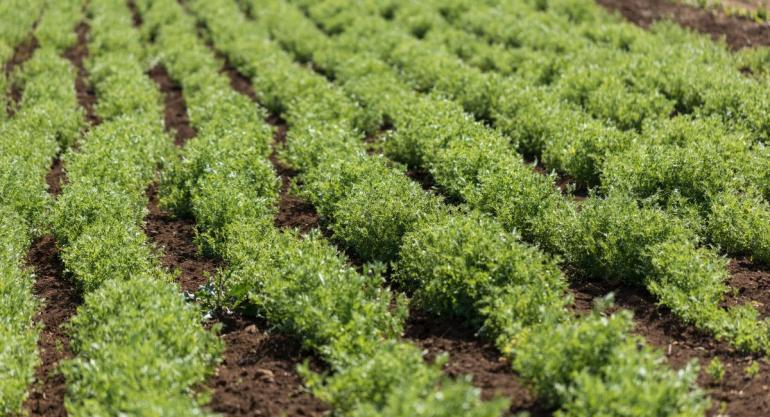
Adding the Lentil Crunchers to their already busy farm life makes for some hectic days, but the extra work is about way more than money for the Farver family. Shauna says, "For us it's about feeding people well and feeding them often. It's a way to bridge the gap between consumers and their food. People really want that connection and we're able to do that in a very personal way."
Animals have always played a major role in Montana agriculture with cattle, sheep, goats, chickens, and the meat, eggs, and products they yield being prevalent on farms of all sizes. In the last several years, many Montana cattle ranchers have decided to use their land to raise grass-finished beef, which comes from cows that have eaten nothing but grass and forage their entire lives. Grass-finished beef ranches now stretch across the state from Lohof Grass-Finished Beef in Otter to Montana Better Beef in Kila to Oxbow Cattle Company in Missoula.
At Oxbow, owners Bart and Wendy Morris run around 350 cows over 5,000 acres of native uplands and river bottom. Their cows feed solely on grass and native plants and get plenty of exercise. The Morrises never use growth hormones or antibiotics and never feed their cows grain. Bart estimates that the cows munch on over 100 different species of plants, which changes the makeup of the meat as opposed to cows finished on grain. The meat is high in omega-3 fatty acids and beta-carotene, and it has more flavor, in Bart's opinion.

Since their operation began in 2014, all of Oxbow's beef has gone directly to the Missoula community through the Good Food Store and restaurants such as Scotty's Table and Wally and Buck. Oxbow also runs a farm stand in the outskirts of Missoula where consumers can purchase steaks, hamburger patties, and a variety of cuts of meat on the honor system by leaving cash in a locked box or paying through Venmo.
The Morrises wait 24 months to harvest their cattle and make a haul to Superior Meats in Superior fifty miles away every other week, which is expensive and labor intensive. So why do Bart and Wendy do it? "I believe this is ecologically the right thing to do, economically the right thing to do, and it's the right thing to do by our community," says Bart. "And we live in a place where we have the luxury that our community supports us. If we didn't have a community like Missoula next to us, we couldn't do it."
Up in the Flathead Valley, the folks at Kalispell Creamery are using the milk of their cows to create a variety of scrumptious dairy products. Owners Mary and Jared Tuck and Bill and Marilyn Hedstrom, along with 20 staff members, oversee a herd of 300 milking cows and produce a variety of milk, yogurt, and ice cream products which are then sold in stores across the state and from their farm store in Kalispell.
Mary believes Kalispell Creamery and Lifeline Dairy in Victor are the only dairy cattle operations in the state that process their own milk. Kalispell Creamery is a vertically integrated system, so all production from cow to sales to distributing is done at their facility. Cows are milked two times a day, seven days a week. The raw milk is then run through a pasteurization process to make all the different products. Mary explains that the creamery's milk is not overprocessed. The cream remains on top which makes the milk thicker and richer.
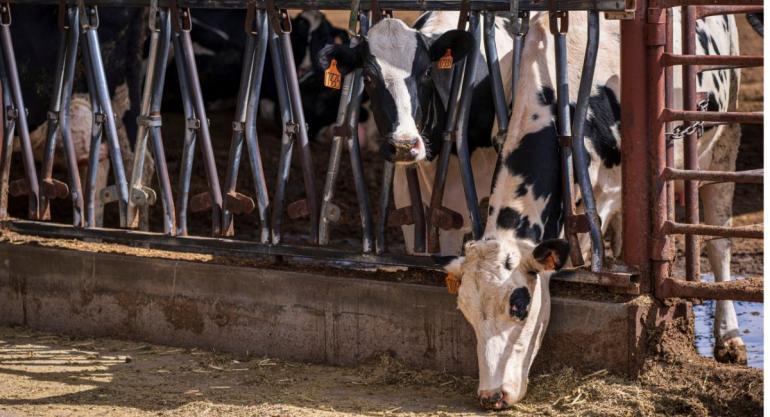
If you visit their farm store at the right time of day, you can see the entire process. The Tucks and Hedstroms take pride in the fact that their operation is open to the public and that their milk hits the grocery store shelves less than 24 hours after it's produced. Mary says, "We really hold to the idea of know your farmer and know your food. Everyone is welcome to come out and see our cows. There's a trust factor there you're not going to get anywhere else."
There are many factors that play into Montana's success in all things agricultural. Natural resources like fertile soil and clean water are important as well as wide open spaces with little development. Arguably, the most vital resource is the people who thoughtfully use these natural resources to produce food to feed their neighbors.
The more you spend your hard-earned money locally, the more money you invest in your community and the more you support your neighbors. Here are some ways you can help support local farmers, ranchers, and producers:
- Visit your local farmer's market.
- Look for products on store shelves with the "Made in Montana" label.
- Sign up for CSAs in your area or contact farms directly to ask how you can support them.
- If you don't find local products in the grocery stores where you shop or on the menu of the restaurants you visit, talk to the owner and express your eagerness to support local.





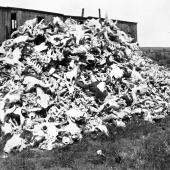
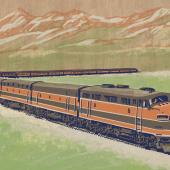
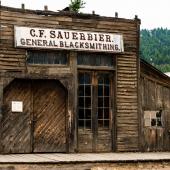




Leave a Comment Here